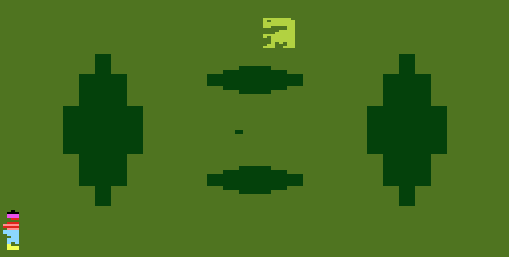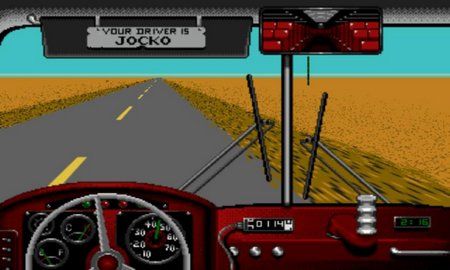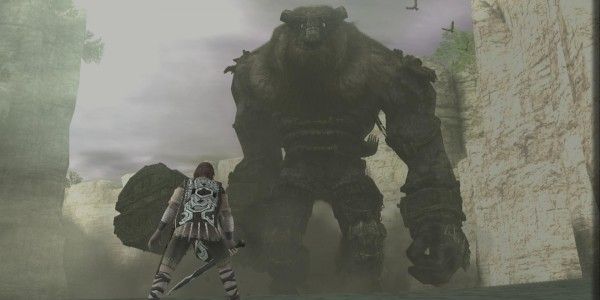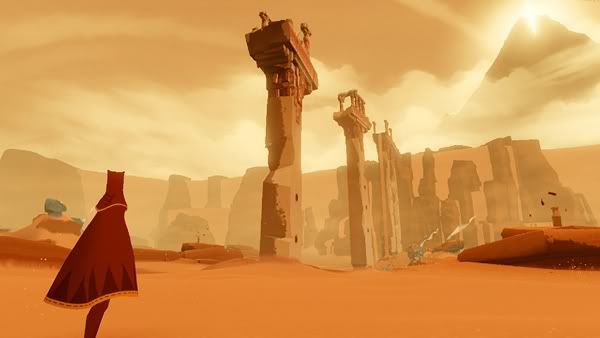This post has not been edited by the GamesBeat staff. Opinions by GamesBeat community writers do not necessarily reflect those of the staff.

You could say I’m a bit perturbed. After watching one of the most recent videos from the team at Extra Credits (this one, which I wholly recommend watching), I’m beginning to worry to about the lack of preservation in our industry.
Now, I know digital download services like Steam and Nintendo’s Virtual Console have revitalized developers’ back catalogues, but some titles still fall through the cracks because of copyright issues or other problems the publisher or developer simply isn't willing to face.

I met a traveller from an antique land
Who said: Two vast and trunkless legs of stone
Stand in the desart.
Titles like the N64's GoldenEye and the GameCube's Eternal Darkness, though incredibly important to our history, can’t be found on any store shelves or download catalogues (unless you happen to live in the most amazing city ever). And though they can still be found used, only a finite amount of cartridges and discs exist. I doubt we’ll ever run out of them, but how long is it before we’re paying $40 to $70 for a game that came out years ago?
This is a distressing problem for the gaming public, but I’m far more concerned about the development and critical sides of the industry. The ramifications of a generation without knowledge of the past would be disastrous, but their resulting creative works could be even more so. Everyone who plans on working in this industry needs to know our shared past; this way, we’ll be able to work together toward creating a shared future.
The next generation of writers, critics, and developers need to experience certain things — shouldn’t they be able to?

Near them, on the sand,
Half sunk, a shattered visage lies, whose frown,
And wrinkled lip, and sneer of cold command,
Tell that its sculptor well those passions read
I’m glad to see more companies addressing this problem by rereleasing titles on platforms like Steam or the App Store, but the team at Extra Credits brought up another valid point: Touch-based control schemes are butchering classics.
Pac-Man may work on just about every device known to man, but Battlezone quickly loses appeal without its arcade cabinet. I would much rather have a port of Grand Theft Auto III on my iPhone with a few control issues than nothing at all, but what about the 10-year-old who may one day grow into a writer or developer thinking that the first 3D game in the series was only a stepping stone for Rockstar’s later efforts? And will they even know that it was the first 3D Grand Theft Auto?
I know they mean well, but some experiences just can’t be replicated without the proper care. That’s why I’m so excited for SNK with the imminent release of their Neo Geo X; it seems as if the company truly wants people to be able to experience its piece of gaming history as originally intended.
But at the same time, I see companies that either no longer exist or operate in a much smaller capacity whose consoles that can only be purchased through online retailers at high prices. Vectrex, Atari Jaguar, Philips CD-i — they’re not cheap, and I suspect very few people would be willing to acquire them.
These problems haunt me. Are we leaving a legacy, or are we striving so hard to get somewhere that we refuse to see where we’ve been?

Which yet survive, stamped on these lifeless things,
The hand that mocked them and the heart that fed:
And on the pedestal these words appear:
"My name is Ozymandias, king of kings:
Look on my works, ye Mighty, and despair!"
This is just as much my fault as any else’s; when I go through the lists of history’s most influential games, I can barely recognize any from before 1995. I’ve been doing my best to fill in the gaps by playing various collections, watching informative Internet videos, and doing even simple things such as reading up on now-defunct development studios — anything to avoid letting ignorance become an acceptable standard.
What bothers me is that few others seem to be interested in preserving our origins — outside of those who were able to experience them firsthand. Perhaps what impresses me the most, though, is the dedication of those who do still remember. The Videogame History Museum, All Your History, and even Did You Know Gaming? have all reinvigorated interest in the days of yore, and I can’t possibly begin to imagine how much good has come from their observation and preservation.
Unfortunately, their methods also confront me with a problem: Informing the public only serves to acknowledge the past. Admirers will see the rarities, not experience them, and therein lies the problem. With other mediums, it is much easier for aspiring artists and wordsmiths to interact with the classics from other eras. Art museums showcase exact replicas, and the Internet can provide detailed approximations. Film critics and creators can appreciate classics through DVD, Blu-ray, and digital rereleases. We, on the other hand, are forced to either find and preserve what we still have or emulate what we don’t.
No matter the choice, our options are looking bleaker as time passes and more titles are forgotten or abandoned.

Nothing beside remains. Round the decay
Of that colossal wreck, boundless and bare
The lone and level sands stretch far away.
Much of our past has been ignored so that more focus can be placed on the present, and that may be the ultimate outcome of this issue, but I’m determined to never let that be my outcome. As any good student of world history would know, the past has the eerie tendency to mirror the future. Without realizing it, many have only repeated their predecessors’ actions when they believed themselves to be doing something never done before.
We may never be able to appreciate our history as much as other art forms do simply because we’ve failed to properly care for it until now, but I don’t think we’ll ever be entirely devoid of a legacy. People spurred on by the stories and experiences of others will keep interest alive, and hopefully the next generation will learn from our mistakes.
Captions from "Ozymandias" by Percy Bysshe Shelley.
